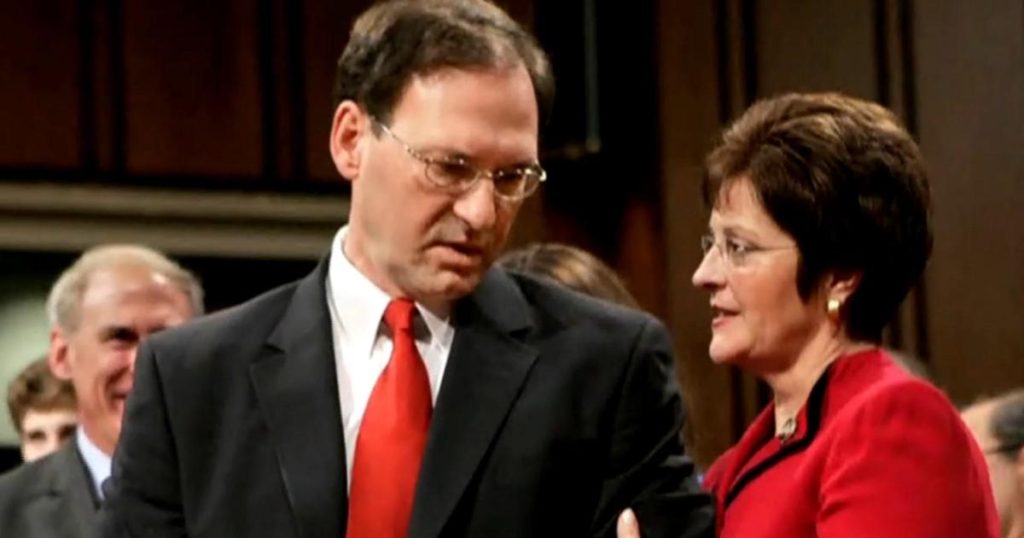Supreme Court Justice Samuel Alito is facing criticism after a report surfaced that an upside-down flag, a symbol used by election deniers, was once displayed outside his home. The symbol has been associated with the false claim that the 2020 election was stolen and has been used by some far-right groups. This has led to mounting scrutiny and questions about Alito’s beliefs and associations.
Alito has responded to the report by stating that he did not put up the flag and did not know the meaning behind it. He has also emphasized his commitment to upholding the rule of law and the Constitution. However, critics are still calling for further investigation into the incident and for Alito to address any potential ties to far-right groups or conspiracy theories.
The controversy surrounding Alito and the upside-down flag has brought attention to the role of Supreme Court justices in upholding the integrity of the legal system. Justices are expected to be impartial and uphold the law without bias, and any perceived association with extremist groups can raise questions about their ability to do so. In this case, Alito’s response and actions will be closely scrutinized to ensure that he remains committed to his judicial duties.
The incident also highlights the broader issue of the politicization of the judiciary and the potential implications for the credibility of the Supreme Court. Justices are appointed for life and are meant to be above partisan politics, but cases like this raise concerns about their ability to remain neutral and independent. As the highest court in the land, the Supreme Court’s decisions can have far-reaching consequences, and any doubts about the integrity of its justices can undermine public trust in the legal system.
The scrutiny of Alito also comes at a time when the Supreme Court is facing increased political pressure and public scrutiny over its decisions on key issues such as abortion, voting rights, and gun control. Justices are under immense pressure to navigate these contentious issues while upholding the principles of justice and fairness. Any perceived biases or connections to extremist groups can further fuel concerns about the court’s ability to make impartial and objective rulings.
Overall, the report about the upside-down flag outside Justice Alito’s home has sparked a broader conversation about the role of the judiciary in upholding the rule of law and maintaining public trust. As the highest court in the country, the Supreme Court plays a crucial role in shaping legal precedent and interpreting the Constitution. It is essential for justices to remain impartial, independent, and free from political influence to ensure the integrity of the legal system and uphold the principles of justice for all. The scrutiny faced by Alito serves as a reminder of the importance of maintaining the credibility and impartiality of the judiciary in a polarized political climate.


